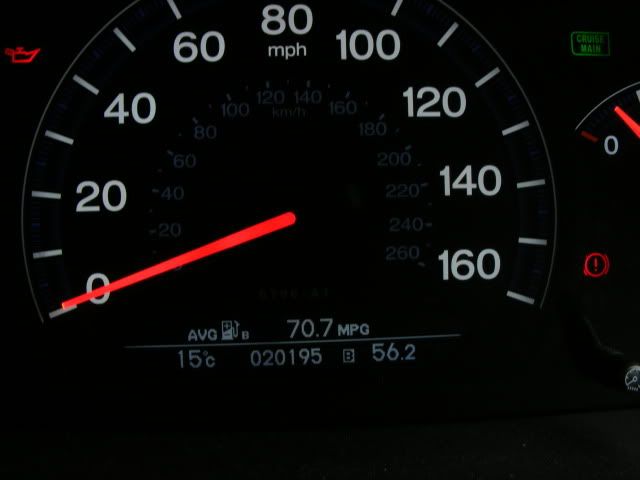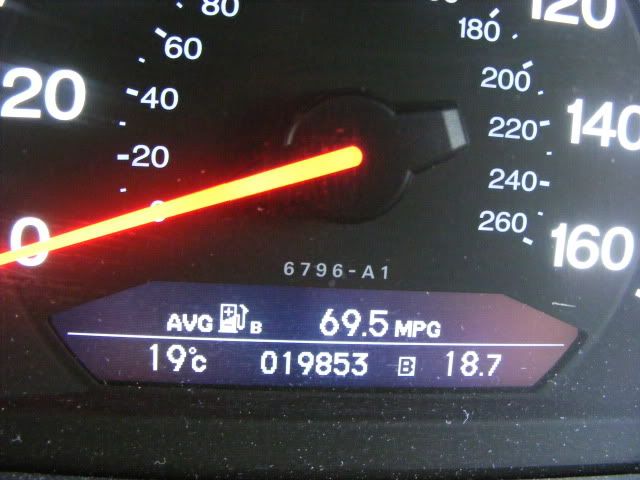ggunn
PE (Electrical), NABCEP certified
- Location
- Austin, TX, USA
- Occupation
- Consulting Electrical Engineer - Photovoltaic Systems
I made no comparison the the Tesla power. That would be a bit silly IMHO. But who would drive a car that can go from 0-60 in under four seconds at a constant 55 mph?
Anyway, this a photograph of the speedometer/oddometer.
The 696 is the calculated remaining miles with the fuel left in the tank. The "B" 372 was how far I'd travelled since my last fill. And it isn't a huge fuel tank - 14 and a bit Imperial gallons.
1000mi/14gal = 71.4 mi/gal. Do you really get that mileage?


